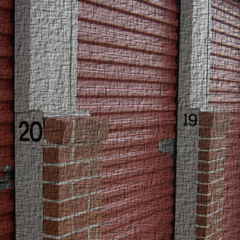NFT Fantasy Football Platform Sorare Raises $680 Million in Series B Led by Softbank
On September 21, the non-fungible token (NFT) fantasy football platform Sorare announced the company raised $680 million in a Series B funding round led by Softbank. The capital raise gives Sorare a new valuation of around $4.3 billion and the company plans to open a U.S.-based office. Sorare Reveals $680M Capital Raise Non-fungible token (NFT) assets have seen phenomenal growth this year and the company Sorare aims to tether the...
RLSLOG: Pirate Release Blog Pioneer Throws in the Towel After 15 Years
Founded in 2006, RLSLOG.net was one of the pioneers of the ‘release blog’ format. When it first launched, visitors were able to read about the latest pirate releases, who had placed them online and, importantly, what the files were called. Unlike so-called ‘pre databases’ that displayed only raw information, new releases on RLSLOG were presented in an article format with comments on the quality, source (such as DVDSCR or the now...
Appeals Court Revives Canadian Reverse Class Action Against BitTorrent Pirates
Movie studio Voltage Pictures has gone after alleged movie pirates for many years now. The company and its subsidiaries have filed numerous lawsuits against alleged pirates in the United States, Australia, and Europe, which likely brought in substantial revenues. Last week, we reported that Voltage just launched a new legal campaign in the UK. At the same time, there is news coming from Canada as well, where Voltage hopes to hold...
My favorite LibreOffice productivity tips
LibreOffice is my productivity application of choice. It’s one of the most potent reasons for recommending Linux distributions to educators and students, whether PK-12 or higher education. Now that the school year is upon us, I thought I would recommend some LibreOffice shortcuts and tips that might save you valuable time. Work faster with keyboard shortcuts I use a lot of keyboard shortcuts. Here are the most common shortcuts...
Add storage with LVM
Logical Volume Manager (LVM) allows for a layer of abstraction between the operating system and the hardware. Normally, your OS looks for disks (/dev/sda, /dev/sdb, and so on) and partitions within those disks (/dev/sda1, /dev/sdb1, and so on). read more Powered by...





